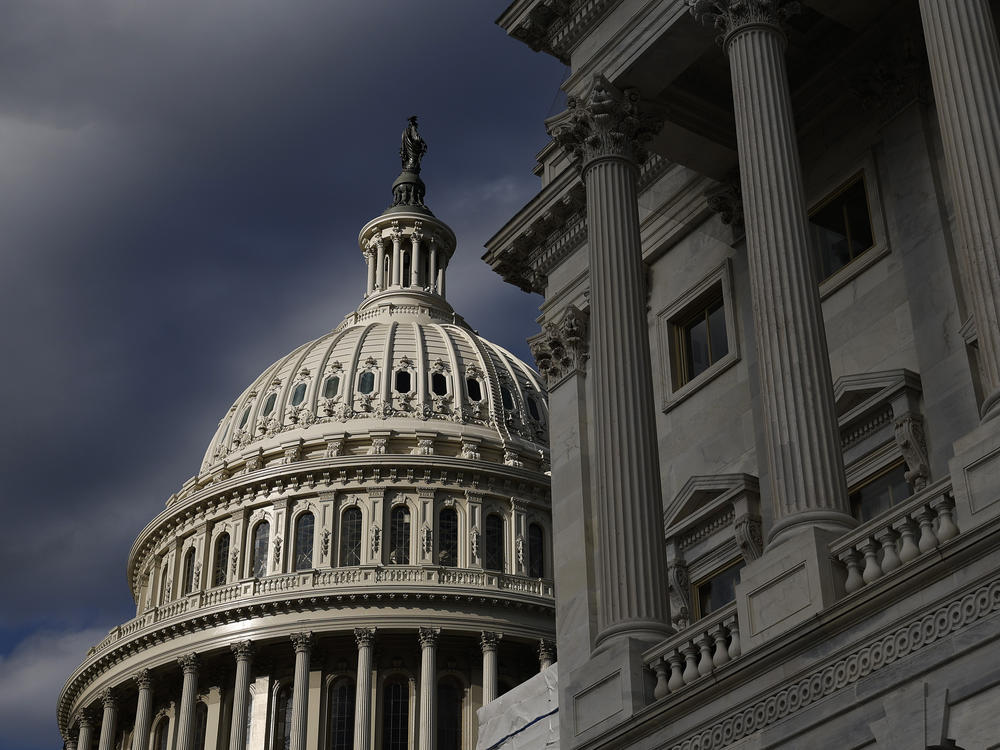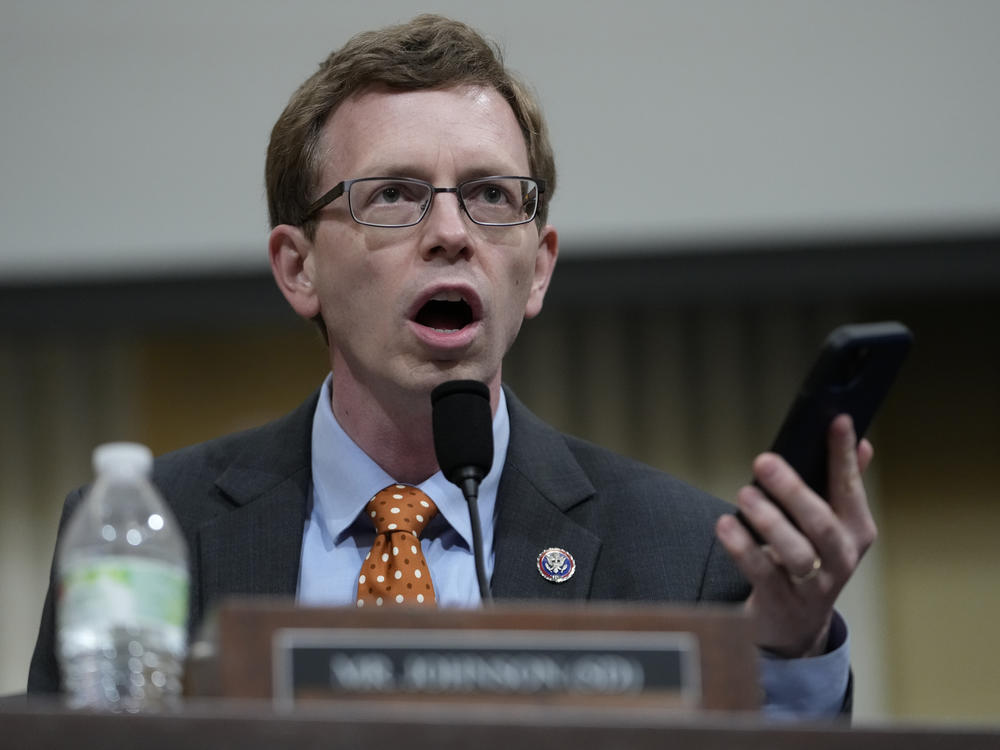Section Branding
Header Content
House Republicans hope their debt limit bill will get Biden to the negotiating table
Primary Content
Updated April 25, 2023 at 11:38 AM ET
The U.S. risks defaulting on its national debt as soon as early summer — which would spell disaster for the domestic economy and global financial markets.
Both Republicans and Democrats agree that Congress must raise the debt ceiling, and soon. But they disagree on how to get there.
House Speaker Kevin McCarthy unveiled a plan last week that would raise the debt ceiling for about a year, in exchange for significant spending cuts and GOP policy changes to federal assistance programs like food stamps.
Congressional Democrats have slammed the plan as extreme and argued that its proposed changes to federal benefits would result in more Americans experiencing poverty.
"Top-line, [the] impact is really bad," Jeff Zients, President Biden's chief of staff, told NPR last week.
The White House insists that raising the debt limit should be separate from talks on federal spending, with Biden saying repeatedly that he wants to sign a clean debt limit bill.
Biden and McCarthy last discussed the debt limit in February. The president says he won't reengage until House Republicans present a budget proposal.
That's prompted criticism from Republicans, and, in recent days, calls from some Democrats for Biden to restart negotiations — at least on the federal budget.
The House plans to vote on the debt limit bill this week, as soon as Wednesday. Republican Rep. Dusty Johnson of South Dakota tells Morning Edition that he has "every confidence" that it will pass, though he's not expecting support from Democrats — and even though Republicans have a slim four-vote majority in the House and it's not clear whether all of them will vote for the measure.
Republicans hope that passing the bill will force Biden back to the negotiating table, though it's unlikely to advance in the Democrat-controlled Senate.
Johnson believes that the U.S. won't default on its debt "because at some point President Biden is going to do what he's always done in the past, which is get in the room and negotiate."
"We have twin crises: We have runaway spending and we have a looming debt ceiling," he adds. "The big boys and the big girls need to be willing to step up and tackle both right now."
Johnson spoke to Morning Edition about his party's approach to the debt ceiling and what he'd like to see next.
This interview has been edited and condensed for clarity.
Interview highlights
On why Republicans would negotiate over paying Congress' old bills, rather than those due now
Well, in part because it's a very regular way of doing business. In 2011 then-Vice President Joe Biden negotiated a debt ceiling increase along with some budgetary controls, in 2004 he voted against a debt ceiling increase because it didn't do enough to address spending. So this is very typical. In fact, the last seven budgetary controls in our nation's history came about because of debt ceiling negotiations.
On why he thinks talks on future spending cuts can't wait for later
If you're the family at home and you get a big credit card bill, you've maxed them all out, of course you're going to pay the credit card bill — I mean, we're going to be responsible. But if you just call the credit card company and blindly increase those limits without sitting down at the family kitchen table and having a conversation about future spending, you're missing a huge opportunity.
We're $32 trillion in debt, we are hitting a serious tipping point, things are much worse than they have been.
On how he thinks the House vote will go
Normally when Congress votes, it's an attempt to govern. Joe Biden won't let us do that. Instead, he's putting this stipulation that we pass something out before he even starts to talk. And this is, I think, more about an opening negotiation position than it is about an actual attempt to pass a bill through the Senate right now, for this week. And so I don't expect we'll have a lot of Democrats help us with that opening position.
On why he considers the national debt "a clear and present danger" to the U.S.
In the last decade we spent $3 trillion just on interest on the debt. Now, that was a lot: No veteran got a new knee for that, no schoolkid got a new school or a school lunch for that. But in the next 10 years we won't spend just 3 trillion on interest on the debt, we will spend 10 trillion on interest on the debt. That is gonna crowd out all of the spending that we need to be a healthy and focused country — and to deal with the threats that face us, we have got to get our act together.
The audio interview was edited by HJ Mai and John Helton.
Copyright 2023 NPR. To see more, visit https://www.npr.org.


